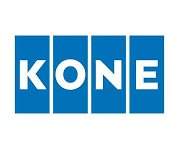Enhancing Facility Management Through Contractor Compliance and Incident Management Systems
Effective facility management requires a comprehensive approach to ensuring safety, security, and efficiency within the facility environment.
Two essential components of this approach are contractor compliance systems and incident management systems. In this article, we will explore the importance of these systems and how they contribute to enhancing facility management practices.
Contractor compliance systems play a vital role in ensuring that all contractors working within a facility meet necessary qualifications, certifications, and safety standards. By implementing a robust contractor compliance system, facility managers can verify that contractors possess the required skills and credentials to perform their tasks safely and effectively. This helps mitigate the risk of accidents, injuries, and liabilities associated with non-compliant contractors.
One of the primary benefits of a contractor compliance system is the ability to centralise contractor information and documentation. By maintaining a centralised database of contractor qualifications, certifications, insurance coverage, and other relevant details, facility managers can easily verify compliance and track the status of contractor credentials. This streamlines the contractor management process, reduces administrative burden, and ensures that only qualified and compliant contractors are engaged for facility projects and services.
Moreover, a contractor compliance system enables proactive monitoring and oversight of contractor activities. Facility managers can set up automated alerts and notifications to remind contractors of upcoming certification renewals or expirations, ensuring that contractors remain compliant throughout their engagement. This proactive approach helps prevent lapses in compliance and minimises the risk of non-compliant contractors operating within the facility.
In addition to contractor compliance systems, incident management systems are essential for effectively responding to and addressing incidents or emergencies within the facility environment. An incident management system provides a structured framework for documenting, reporting, investigating, and resolving incidents, ranging from workplace accidents and injuries to security breaches and environmental hazards.
One of the key advantages of an incident management system is its ability to facilitate timely and coordinated responses to incidents. When an incident occurs, facility managers can use the incident management system to quickly record relevant details, notify appropriate stakeholders, and initiate response protocols. This ensures that incidents are addressed promptly and efficiently, minimising disruptions to facility operations and mitigating potential risks.
Furthermore, an incident management system enables thorough investigation and analysis of incidents to identify root causes and implement corrective actions. By documenting incident details, collecting witness statements, and conducting post-incident reviews, facility managers can gain valuable insights into underlying issues and trends contributing to incidents. This allows for targeted interventions and risk mitigation strategies to prevent similar incidents from recurring in the future.
The integration of contractor compliance and incident management systems offers several synergistic benefits for facility management practices. By leveraging these systems in tandem, facility managers can establish a comprehensive approach to risk management and safety assurance within the facility environment. For example, a contractor compliance system can be integrated with an incident management system to ensure that only compliant contractors are engaged for high-risk activities, reducing the likelihood of incidents occurring.
Moreover, incident data collected through the incident management system can inform the evaluation and selection of contractors based on their safety performance and track record. This enables facility managers to make informed decisions when contracting services and prioritise contractors with a demonstrated commitment to safety and compliance.
In conclusion, contractor compliance and incident management software are indispensable tools for enhancing facility management practices. By implementing these systems, facility managers can proactively manage contractor compliance, effectively respond to incidents, and continuously improve safety and security within the facility environment. The integration of these systems enables a holistic approach to risk management and reinforces a culture of safety and accountability throughout the organisation.














